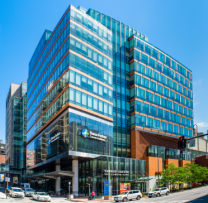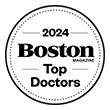Competing risks data analysis, time-to-event data analysis, design of clinical trials with special emphasis on hematopoietic stem cell transplantation and cancer vaccine studies, missing data analysis, and high throughput data analysis.
Dr. Kim’s research involves the design, conduct, analysis and reporting of translational clinical trials, database and laboratory studies pertaining to hematopoietic stem cell transplantation (HSCT) and cancer vaccine projects at Dana-Farber/Harvard Cancer Center (DF/HCC), as well as leukemia-related translational clinical and laboratory studies conducted outside of DF/HCC.
Her statistical research focuses on statistical issues of competing risks data, time-to-event data, designing clinical trials with special emphasis on stem cell transplantation and cancer vaccine studies, missing data analysis, and high throughput data analysis.
The effectiveness of a cancer treatment is typically measured by the disease-free survival probability and its compliment is the treatment failure probability which can be further partitioned by probabilities of disease recurrence and death due to the treatment related complications (termed ‘treatment related mortality’). The probability of disease recurrence gives information on how well the treatment cures the initial disease whereas the probability of treatment related mortality gives an indication of how toxic the treatment itself is. In many cases, there is a trade-off between the two competing risks: disease recurrence and treatment related mortality. These probabilities together help us understand the efficacy of a cancer treatment.
Allogeneic hematopoietic stem cell transplantation (HSCT) can deliver a cure for a variety of malignant and non-malignant hematologic disorders. Cure through HSCT may be achieved through the cytotoxicity of the conditioning regimen or through the graft-versus-tumor (GVT) effect brought about through adoptive immunotherapy. However, both of those effects are also intimately tied to the toxicity of HSCT; an increase in conditioning intensity may be associated with a decreased risk of disease recurrence and graft failure, but also with an increased risk of mortality; and the strength of the GVT effect is closely tied to the risk and severity of graft-versus-host disease (GVHD) and its considerable attendant morbidity and mortality. Statistical analyses of HSCT outcome face unique challenges because many clinical endpoints depend on GVT and GVHD, two events that are immunologically intertwined but of diametrically opposite clinical consequences. For this reason, competing risks methodology is an essential part of endpoint estimation in HSCT research. However, the choice of the competing events for an endpoint of interest are far from clear and yet will have significant implications on the estimate itself. My research objective includes designing and implementing broadly applicable standard definitions of HSCT clinical endpoints and developing guidelines for competing risks data analysis; promoting the use of competing risks methods in other types of cancer where the importance of competing risks is poorly recognized and thus treatment failure is inappropriately evaluated.



